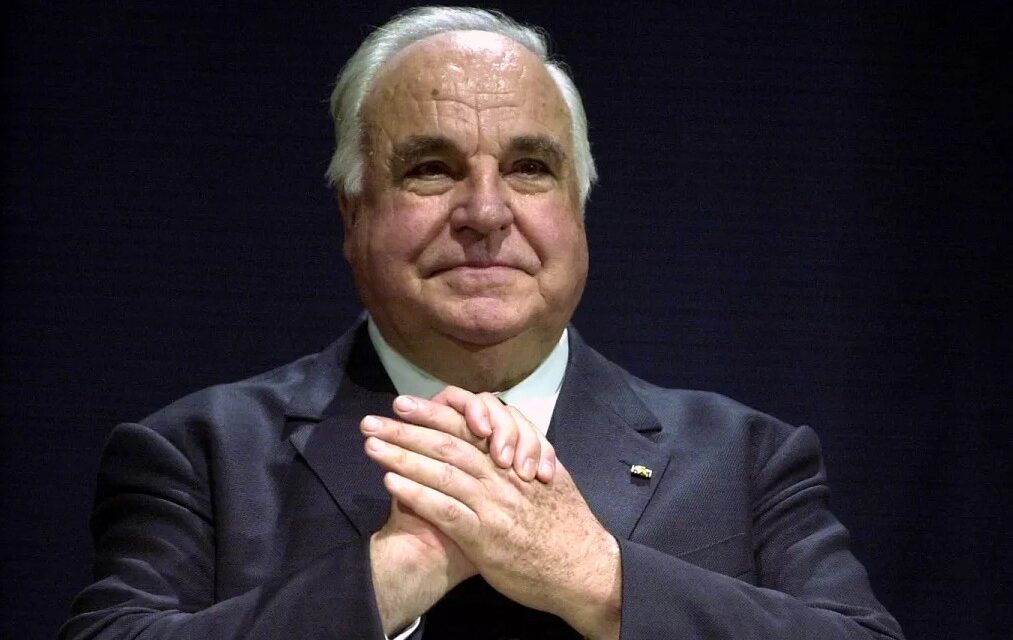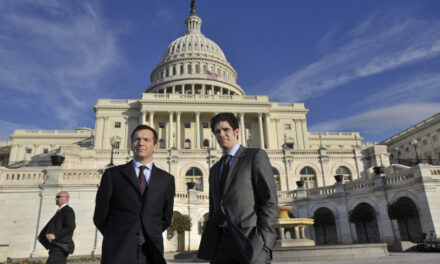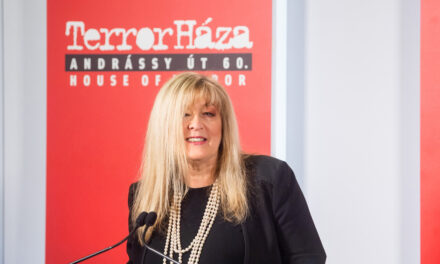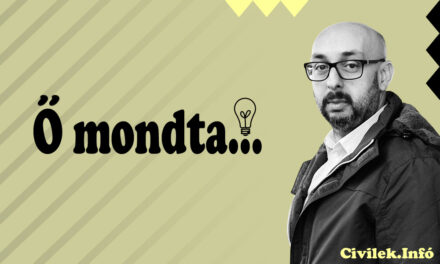The legendary chancellor could still be negotiated with, unlike the violent global elite.
Let's look back a little in the history of the union to understand why it is so important and a big deal that the new European Parliament group Patriots for Europe was created at the initiative of Viktor Orbán.
I will start with the fact that in January 1985, the French socialist politician Jacques Delors became the president of the European Commission, and with that a new era began in the life of the community. Delors, the French socialist politician, was a staunch federalist who, from the very beginning, strove to strengthen the globalist "founding father", Jean Monnet's supranational institutions, at the expense of intergovernmental organizations, and in this he assigned a particularly important role to the committee he led. . Five years after taking office, in January 1990, he already stated that the community needed a common foreign policy, and that the committee should become a community executive power (European government) and the full federation should be implemented. According to Delors, this is dictated by the Treaty of Rome and the intention of the founding fathers. (Unfortunately, he was right about the latter.) He set the goal that Europe would function as a real federation in the millennium.
The leaders of European large-scale industry, and indirectly the global economic and financial elite, advocated the introduction of a single market within the community - in accordance with their well-understood economic and profit interests. To this end, the European Round Table of Manufacturers was established in 1983.
The round table drew up a plan for the creation of the single market, according to many, exerting considerable pressure on Delors, who later became a symbol of the plan for the single market. It was precisely the global economic circles appearing in the round table that - through the committee - started the community in the direction of economic and political union, and Jacques Delors became an emblematic figure of this process.
It is therefore no coincidence that in 1986 the unified European document was born, which formulated federalist goals. The goal of the document was the introduction of the single common market, with a date of December 31, 1992. It was here that the principle of free movement of goods, services, persons and capital was formulated for the first time, which then took shape in the Maastricht Treaty of 1992 and the then-established European Union.
The end of the 1980s and the beginning of the 1990s brought a radical change in the history of the now twelve: the Soviet Union lost the Cold War, the Central and Eastern European vassal countries were freed from the bonds of communism, the Berlin Wall came down on November 9, 1989, and the issue of German unity was put on the agenda. In this changed political environment, the Twelve believed that a political consolidation of Europe was necessary, and that the democratizing Central and Eastern European countries should be given a chance to join the community. This, however, requires them to act as a unified political entity.
The issue that has divided the European community for forty years has come to the fore again: should they remain on the ground of economic cooperation and unification, as they have done since 1957, or should they move in the direction of political federation.
Delors, the chairman of the committee, joined hands with the Netherlands in the new challenge and demanded stronger integration and federal transformation, but these political ideas that went beyond the economic community were broken by the resistance of the British, French and Germans. However, the British story is different: Margaret Thatcher, in accordance with British traditions, remained on the ground of national sovereignty, self-reliance and independence within the community, and rigidly distanced herself from the wild federalist ideas of Jacques Delors.
In contrast, German Chancellor Helmut Kohl and French President Francois Mitterrand chose a constructive path: in April 1990, they issued a joint statement calling on the member states to do everything possible to create a political union.
The call was followed by action, and it was once again proven that the fate of the community depends mainly on the intentions and agreements of the French and Germans (this is the situation in the union to this day), the other states adapt to them, and their actions are determined in relation to them. The British were and still are an exception with their special approach, which, however, also means the protection of national sovereignty: Thatcher rigidly distanced herself from the idea of a political union, but this position proved to be popular with many in the British domestic political space, so among other things, this may have contributed to the fact that He was forced to resign at the end of 1990.
The end result is that neither Delors's federal dream nor Thatcher's radical concept of sovereignty prevailed, instead a - repeated - compromise between the federation and the confederation was realized along the lines of Kohl's and Mitterrand's ideas. The European Union was born from this in 1992. Although political integration did not take place, and the community continued to move towards integration mainly in the economic and financial fields, it is a fact that certain changes nevertheless pointed towards a federal union.
Helmut Kohl therefore, as in most aspects of his foreign policy, tried to find the possibility of a good compromise, in this case between excessive supranationalism and the complete independence of nations, if you like: federalism and sovereignty. However, if I still want to express an opinion based on his activities in the Union and his thoughts and writings, I would be inclined to believe that he followed the moderate trend of the later founding fathers, who envisioned a federal system for the Union, but while preserving a certain degree of independence and characteristics of the nations, especially with regard to national consciousness, national pride and culture. However, it is still a fact that when he talked about political union and that the range of common policies should be broadened and deepened, it seems that, in addition to maintaining cultural differences, he still professes the principle of an ever closer union, that is, he is a supporter of common political decisions, which he we can translate that the majority decision-making principle was closer to him than consensus or the veto right of the member states. I feel that this is what we owe to the truth when we approach its consideration of views based on the principle of sine ira et studio.
At the same time, Kohl's entire career and his excellent sense of compromise tell us that even if we may not agree in principle with the idea of a politically unified union with today's reason and political eyes, we can be sure that he was a politician with whom one could always and always negotiate the about differences of opinion, these did not have to be hidden under a bushel, and there was always the possibility that Kohl would recognize such connections, on the basis of which it was even possible to imagine a change or modification of his views.
In Hungarian, what we see today on the part of mainstream politicians in Brussels and overseas, the mercilessly one-sided and violent, dictatorial tendency to assert their will, then we will certainly cry back to Helmut Kohl and his generation of politicians, with whom we could still negotiate, we could count on understanding and empathy, middle- and Eastern Europeans, to whose problems the legendary chancellor showed complete openness.
This is what is primarily missing from today's Brussels and Atlantic politicians, who are no longer really politicians and statesmen, but executors, officials, links in a machine, whose management is carried out by unelected financial and economic powers from the background. But the already very visible global elite.
The Patriots for Europe faction must confront this force!
Source: Hungarian Nation
Photo: euronews.com screenshot













